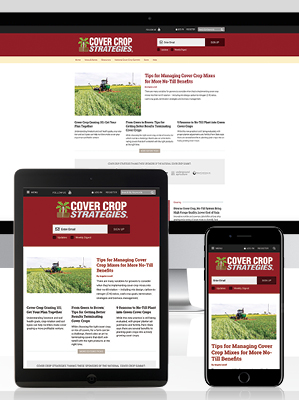Sarah Hill
ARTICLES
Don’t Be Intimidated by Interseeding
Cover Crops Fuel Minnesota Dairy’s High Milk Production
We Don’t Have Decades to Increase Cover Crop Adoption
Announcing 2022 National Cover Crop Summit Speakers
Cover Crops Reduce Crop Insurance Claims While Increasing Biodiversity
North American Farmers Have a Long Way to Go with Establishing More Cover Crop Acres
Lack of Funding Blamed for More Growers Not Adopting Covers
Cover Crops Can Help Operations Sequester Carbon, Prepare for Extreme Weather

The National No-Tillage Conference returns January 6-9, 2026! Build and refine your no-till system with dozens of new ideas and connections at the 34th Annual National No-Tillage Conference in St. Louis, Jan. 6-9, 2026. Experience an energizing 4-day agenda featuring inspiring general session speakers, expert-led No-Till Classrooms and collaborative No-Till Roundtables. Plus, Certified Crop Adviser credits will be offered.
Learn MoreTop Articles
Must Read Free Eguides
Download these helpful knowledge building tools
- How No-Till Improves Your Land Value
- Grazing for Soil Health and Getting Cover Crops Into the Mix
- Finding Your ‘ROI’ with Cover Crops in No-Till Systems
- Keep Covers in Your Rotation Without Breaking the Bank
Videos
2025 National Cover Crop Survey Release
More than 650 farm advisors from across the U.S. participated in a survey on cover crops, shining light on how they advise growers on cover crops. A report on the survey was released this week by the Conservation Technology Information Center (CTIC), USDA SARE Program, and the American Seed Trade Association.






